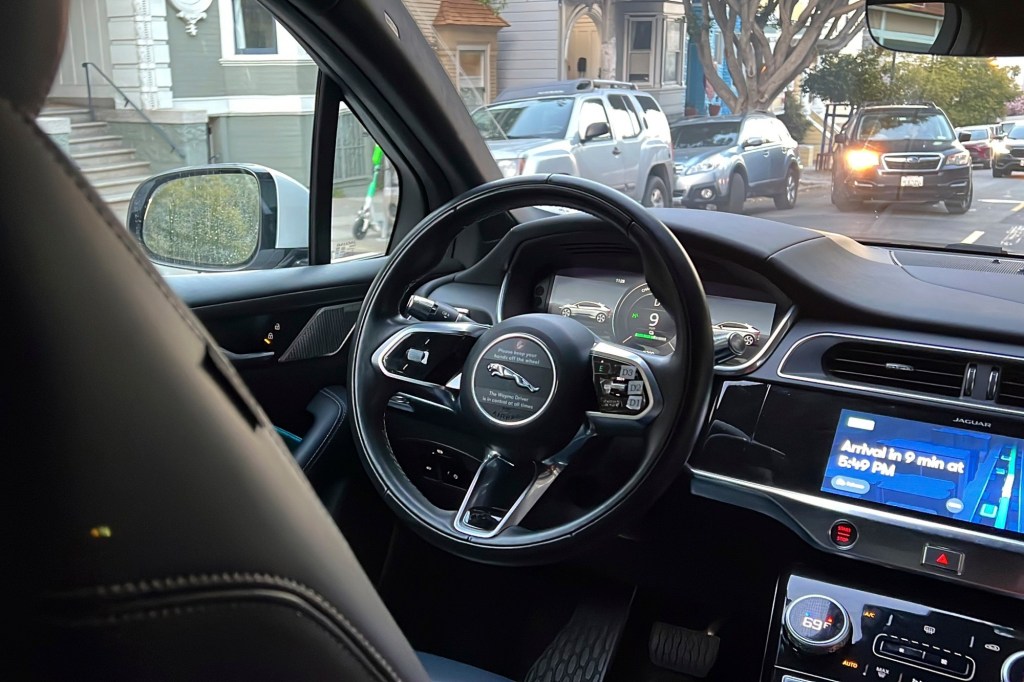
Californians are increasingly riding in autonomous vehicles (AVs) and loving the experience. Yet a puzzling new bill has been introduced in Sacramento that would allow humans in AVs but ban the technology from transporting commercial goods. In other words, AVs could transport humans but not a burrito or a bag of groceries. How can it be the most precious cargo in the world—human life—would be allowed to travel autonomously but a package cannot?
Assembly Bill 33 would impose a permanent ban on the autonomous delivery of all “commercial goods” to consumers or businesses. The proposal would effectively sideline the most promising transportation innovation of the twenty-first century. This isn’t a narrow or temporary measure. It’s a sweeping prohibition that would impact all sizes of autonomous vehicles, regardless of their safety record or community benefits.
The proposal fails to recall the role autonomous vehicles played in delivering medical supplies during the height of the COVID-19 pandemic, bringing meals to low-income neighborhoods in San Francisco, or delivering affordable grocery deliveries to working families across the state. The future is even brighter, if politicians don’t kill it before Californians benefit.
AB 33 doubles down on a bad idea that Governor Newsom wisely vetoed twice in two years. At the time, the governor explained the legislation was “unnecessary for the oversight and regulation of heavy-duty autonomous vehicle technology in California.” That concern is even more relevant now. AB 33 goes far beyond previous versions of the bill, extending the ban to light-duty autonomous delivery vehicles that have been regulated for nearly a decade in California and have proven to be safe, effective, and valuable. That’s why consumers are excited to tap autonomous vehicles in their daily lives.
California has an incredibly sophisticated regulatory structure for autonomous vehicles. State regulators have more real-world experience with the technology because California has experienced considerable AV deployment in recent years. Despite this backdrop, AB 33 would undermine California’s expert safety regulators who conduct strict state oversight of the technology. California regulators have issued driverless testing and deployment permits based on years of data, operational experience, and safety performance. AB 33 would effectively nullify those permits, denying consumers the ability to receive new services that lower costs and increase convenience – something everyone in the state needs.
It’s particularly alarming that AB 33 would pull the rug out from under California safety regulators at a time when they are poised to update AV regulations. After releasing a draft framework last fall, the Department of Motor Vehicles is preparing to roll out new proposed rules for autonomous trucking. This smart step has been years in the making and would mean autonomous technology could help alleviate supply chain challenges in California and leverage the state’s transportation infrastructure. But AB 33 would override that regulatory process and shut down AV trucks for at least another six years, if not permanently.
Nearby states like Arizona, Texas, and Nevada are moving forward with autonomous vehicles as California politicians try to put up a “STOP” sign. These states will continue, attracting jobs, infrastructure investment, and innovation hubs. Now is not the time for California to move in the opposite direction.
For the autonomous vehicle industry, safety is not just a priority; it’s the foundation of our industry. But AB 33 would make Californians less safe, not more. By halting the deployment of AVs without any evidence that a human observer would improve safety, it removes one of the most rigorously tested, consistently monitored, and predictably performing driving systems from California roads.
California can embrace both innovation and safety by rejecting AB 33. This will require all stakeholders—lawmakers, regulators, labor, and industry—coming together to forge a new path and setting aside fear mongering that divides us.
Jeff Farrah is the chief executive officer of the Autonomous Vehicle Industry Association (AVIA). He grew up in Torrance, California.
Originally Published:



